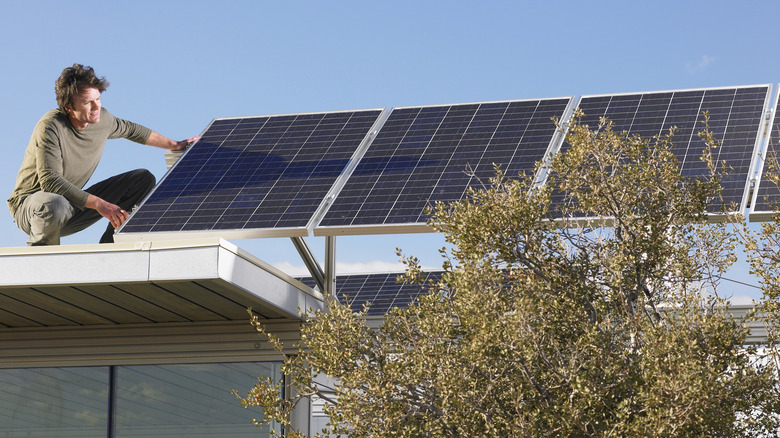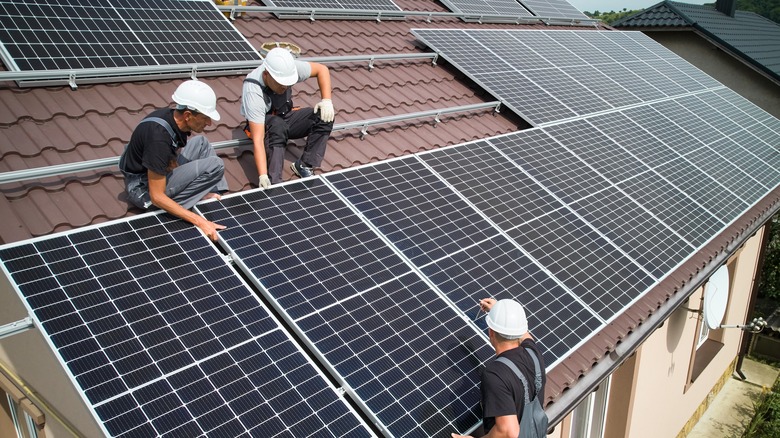Can You Combine Flexible And Regular Solar Panels?
Solar panels can be lifesavers in days when electricity is becoming a crippling expense; they lower your electricity cost, and are good for the environment. Nowadays, solar panels are becoming more and more common, with even some electric cars being manufactured with solar panel roofs. Granted, solar panels aren't necessarily as simple as plug-and-play, and there are things you need to know before buying and installing solar panels on your home.
That said, with solar panels becoming more accessible to all kinds of people, it's obviously important to be informed before you go ahead and make the decision to make your home solar-powered. There are also many options when it comes to installing solar panels, including different sizes and batteries. In recent years, flexible solar panels have also become more popular, but buyers should be aware of the unique differences and constraints that come with flexible solar panels compared to regular solar panels.
Flexible vs. regular solar panels
Flexible solar panels are, well, what the name implies. They are thinner and more lightweight than standard solar panels, which leads to some panels even being as "flexible" as the name suggests — with some ultra-thin panels even as small as stickers. Because of their thin form factor, flexible solar panels can be much cheaper to produce and install than standard ones. This also makes them easier to move from one place to another, which makes flexible solar panels ideal for RVs and boats constantly on the move.
The downside to a flexible solar panel is that they have limited power compared to standard ones. This means flexible solar panels are not best suited to power a home, as the limited power and lower efficiency means you'd need more panels spread out over a much larger area than standard panels. You can certainly combine the two types of solar panels in any configuration as long as your home or site of installation can accommodate both, but that will depend on the efficiency you require from both panels. Using both types of panels will also largely depend on why you might need both affixed and flexible solar panels in the first place, versus just using standard panels entirely.
What kind of panel suits you best depends on what exactly you want it for. If you want a more permanent solution to help offset the cost of powering your home, you may want to stick with traditional panels. If you value mobility and a thin form factor for whatever scenario, then flexible panels are worth looking into.

